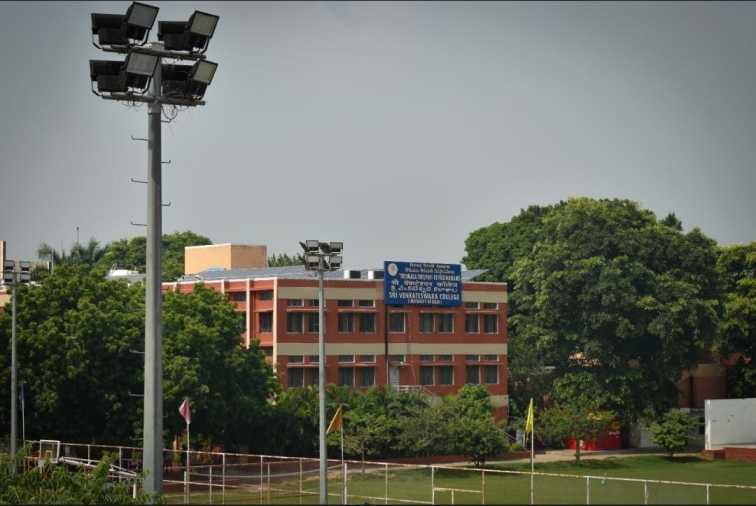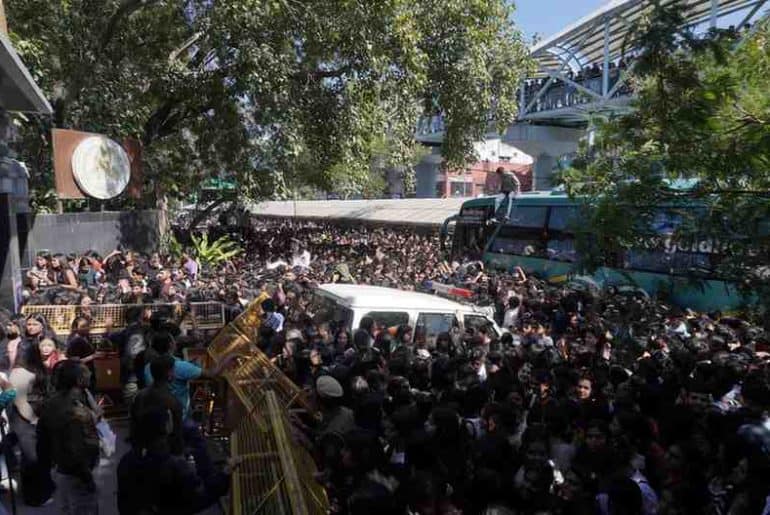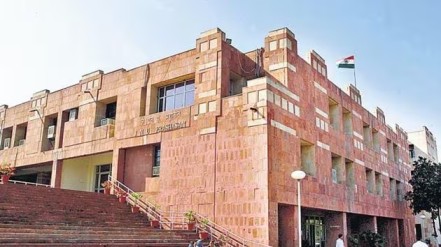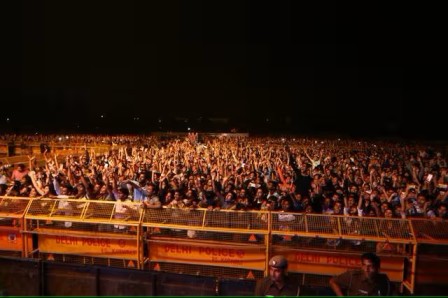University of Delhi’s Sri Venkateswara College witnessed a massive footfall following the culmination of its Annual Fest, NEXUS, in March.
Sri Venkateswara College, under the aegis of the University of Delhi, celebrated its Annual Fest, NEXUS, on the 3rd, 4th, and 5th of March this year. Upon entering the college gates, one witnesses what appears to be the college’s way of presenting an ode to Delhi—a Jashn-E-Dilli, if you will. Every corner has been decorated with banners naming popular sites of everyday pilgrimage, from the Faqir Chand and Sons bookstore to Sarojini Nagar.
An inauguration ceremony preceded the performance of the Dramatics Society of the college as they took to the front lawns on Day 1 from 9.30 A.M. onwards to celebrate Madari’25, an annual street play event, abuzz with the energy of the performers. Crescendo, the Western Music Society of Sri Venkateswara College, presented the Battle of Bands from 1 to 5 P.M. as a tribute to Delhi, the heart of the country’s music revolution. In the midst of it all, Alaap, the Indian Music Society of the college, presented Raageshwari, a polyphony of melodies, at the Indian Classical Choir Competition. While Nrityangana, the Indian Dance Society, took to the dance floor in solo and group dance competitions.
As you enter the building, leaving behind the cacophony of singing voices and the chants of the dramatists, you are met with Mehfil-e-Tamasha, an improv battle taking place in Room 57. If there is one thing that has stood out by now, it was the dedication with which all artists performed, the veneration they heaped onto artistry, eventuating in a showdown for the history books.
Kurukshetra, the crew-based dance competition, preceded the performance of the night by The Frequency Project, who gave music a Sufi spin in their own rendition of popular classics.
Day 2 was marked by Effulgence, Sri Venkateswara’s Photography Society’s annual display, Kodachrome, taking place in tandem with Opera D’Arte 3.0, Leonci Art Society’s annual display. A student from Lady Shri Ram College for Women, who planned on staying for the Mr. Professor’s DJ nights after participating in H#, the Western Acapella Competition, stated:
It’s been an interesting run so far. The wins were well-deserved. I’m staying here till 6 for the DJ.
As is the case with every DU-affiliated college, the sole event that marked Day 3 was the performance of the much-awaited artist. This time, Javed Ali of Guzarish fame took to the stage. Post Dilli Ke Darshan, the concert gave people in the audience a lifetime of memories and then some more.
Featured Image Credits: Arush for DU Beat
Aastha Singh










